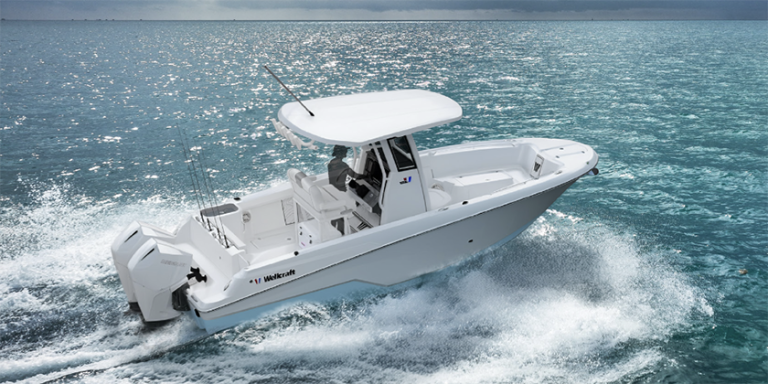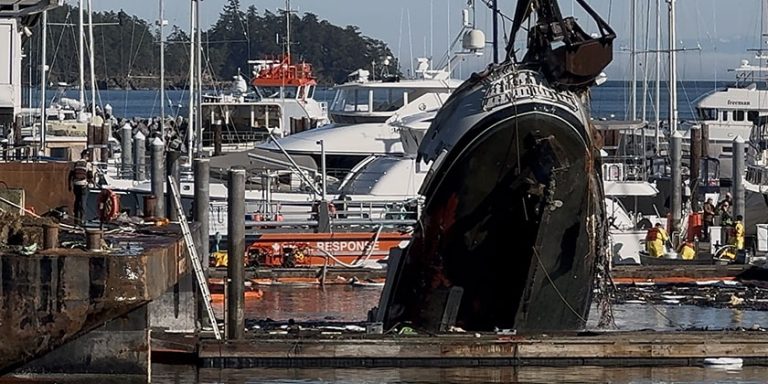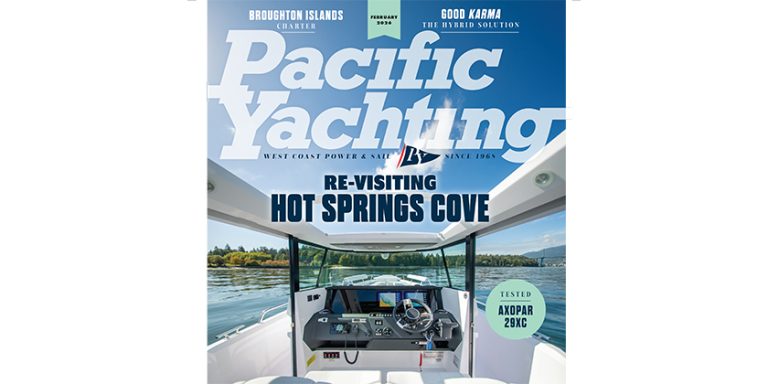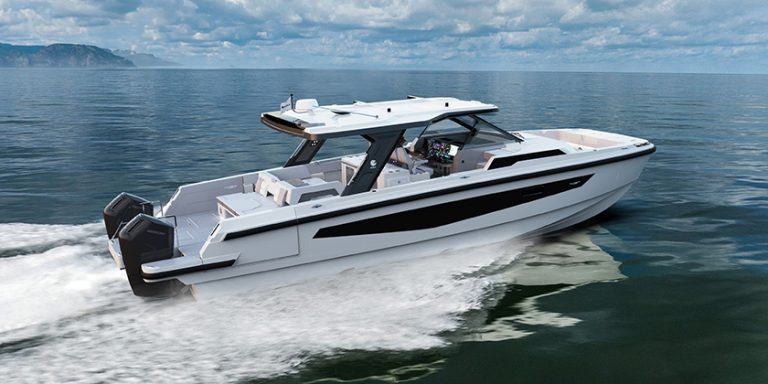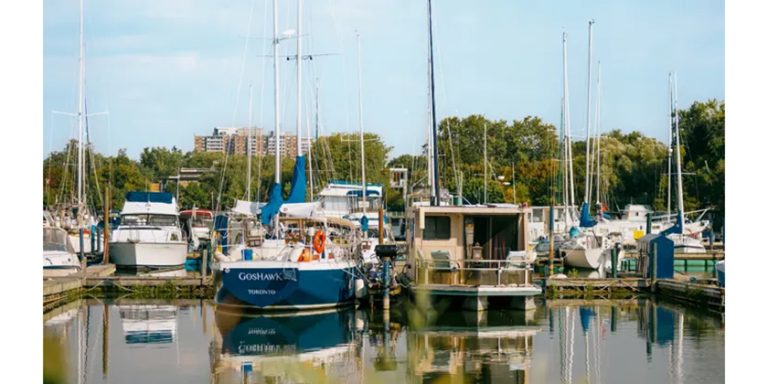From time to time Canadian Yachting will be featuring stories submitted by you, our readers, with any boating experiences you may want to share. They can be about anything to do with boating, your tips and tricks, your favourite anchorage, trips gone wrong, planning for a long cruise……we’re interested in reading it all.
Please send your submission to Jill Snider at jillsnider@kerrwil.com, complete with any photos and video that accompanies your story. We’ll publish one reader story in each CY Onboard newsletter, which is sent out twice monthly across Canada.
We are kicking off our this new concept with an excerpt from author Catherine Dook’s book, Darling Call the Coast Guard, That Boat is Listing
By Catherine Dook
Introduction
People who live on boats are special. They have to be. Some mornings I wake up with drips on my face and last night’s reading book tangled with my glasses and yarn stash, and I am surprised that I still live aboard. I am surprised until I glance over at my husband, John, who is listening to CBC news and grizzling that the bottom sheet has detached from the vinyl mattress cover during the night again and his feet are freezing. Then I remember that eleven years ago I married John for better or for worse, and despite the fact that sometimes we are damp, and that mechanical things break, living on a boat is the most fun way to waste money we could have possibly invented. And I am content. Some of the people described in this book are personalities so blended as to be fictitious.
The Award
As my husband, John, and I stood on the dock that rainy winter day, the wind breathed chill, damp breath on our faces, and the grey skies and limp tarps hung about us like a depression. I shivered, and sank my chin further into my jacket; then, “Look!” I exclaimed, “Here he comes.”
The marina owner, a tall, grey-haired man of great tolerance, strode toward us on the docks.
“Congratulations!” he called. “You’ve won the ‘power hog’ award again this month for excessive electrical consumption.”
“Again?” John exclaimed, “Well, fancy that.”
“You’re as bad as Al Gore!” crowed the marina owner, as he ripped our bill off his pad and handed it to me. “You were neck and- neck with Fast-Food Ed for awhile, but you pulled ahead at the end of the month. Another win for the Dooks.”
“Ninety-six dollars!” I exclaimed, reading the fluttering paper I held between my fingers. “So how come we’re still freezing our butts off?”
“You have me to keep you warm, my little flobber-chops,” said John. He turned to the marina owner. “Do we get a discount for Catherine’s hot flashes?”
“No discount,” he said firmly.
“Surely we should rate one for our solar panel and wind generator.”
“I’d hate to think what your bill would be without them,” said the marina owner. “No discount.”
“Thousands of dollars worth of equipment, and I bet it saves us six or seven dollars a month, tops,” I said cheerfully.
“No wonder ecologically-with-it conservers like us are always broke.”
“I see you’ve already made a good start toward next month’s win,” the marina owner called over his shoulder, marching purposefully back toward the pier head, “You’ve left your companionway hatch open.” John and I dove simultaneously to shut it.
Once below again, I gave my husband a serious look.
“Darling,” I said, “perhaps we should do something about our electrical bill.”
“I don’t know what we could do that we haven’t already done,” said John slowly. “We use our propane heater a lot but it’s too small to be our principal source of heat, so we have to use our electrical space-heater. Our hot water tank isn’t a large one, it’s well insulated and we only run it once a day. Our fridge uses hardly any power and there’s nothing else except light bulbs and the computer. What could we cut back on?”
“Drafts,” I said promptly. “We can cut back on drafts. Also, the Sal-Mart has had a run on Hudson Bay Point blankets lately, so I’ll do my part and hunt some down.”
I left to plumb the delights of the local thrift stores, while John stuffed linen dishtowels into all the Dorades and sealed the grid over the water manifold with a strip of cardboard and a hank of duct tape, the boaters’ tools of choice. When I returned from shopping, I had a bag filled with a shirt for John, a shiny stainless steel locket, three out-of-season Christmas music CDs and a half-filled pot of shoe polish.
“I thought you were going to buy blankets,” John said.
“The shirt’s flannel, jewellery makes me so happy I don’t notice I’m cold; just thinking about Christmas gives everybody a happy glow and the exercise you’ll get polishing your shoes will keep you warm as toast,” I said.
There was a scratch at the companionway door. It was Oliver, the neighbours’ ginger tom, who often dropped in for snacks and companionship. The door swung inward and Oliver strolled down the ladder.
“It’s that dandruff-shedding, freeloading furball,” I said.
John ignored me and addressed the cat. “Would you like Havarti or Gouda today? Or some of Catherine’s luncheon meat?”
“What?” I asked.
“Sometimes he prefers luncheon meat,” John explained,
“on a plate.”
“We EAT from those plates,” I said. Oliver eyed me nastily, then turned an adoring whiskered face to John and rubbed his head on his shins. A shower of orange fur flew in all directions and settled in the corners of the main saloon.
“Wait a minute,” I said. An idea had suddenly come to me.
“A small investment in cheese might save on energy after all.”
That night we turned the electric heater down and Oliver slept over. He slunk quietly to the bottom of the aft cabin, draped his overweight carcass over John’s feet and fell asleep.
John awoke the next morning with warm feet and a bad case of plantar flexion, but he said it was worth it.
The days lengthened, the snow melted into dirty piles and I no longer had to crawl down the docks on my hands and knees every morning because my corduroy trousers had more traction on ice than my sneakers. The docks became wet rather than icy and we grew accustomed to sunlight. One of the rituals of spring is poking around Boaters’ Exchange in Sidney, and one Saturday while foraging there we found a second-hand heated towel rack on sale for $28.00. We raced home to install it in the head before the salesman changed his mind about the price.
John read the directions.
“It uses only as much electricity as a light bulb,” he said.
“Think of the saving.”
Though it didn’t actually make the head WARM – no power, not even 110 volts, could accomplish that – it took enough of an edge off the chilly air that it transformed my life.
The head was now more comfortable than a deep freeze and drier than a public swimming-pool change room. I spent hours rediscovering myself in the privacy of a quiet place, showering without fear and trying on my stainless steel locket in luxurious comfort. The hot water tank emptied and filled, the holding tank pump throbbed rhythmically, Oliver purred in the man saloon over exotic cheeses, and John polished shoes and hummed Christmas carols. A month passed before we knew it and one sunny afternoon we spotted the marina owner walking down the dock toward us.
“Congratulations are in order, I think,” I cried. “We’ve saved a ton of electricity this month. Fine cheese, cat hair, shoe polish – no expense has been spared.”
“Congratulations ARE in order,” the marina owner said dryly. “You win again this month. Power hogs you were, and power hogs you are.” He ripped a bill off his pad and handed it to me.
“Ninety seven dollars!” I exclaimed. “It’s nearly spring and our power bill’s gone UP a dollar.”
“First place again,” said John. “Now fancy that! Come, Oliver. Let’s go see if our neighbour, Fast-Food Ed, has any extra cheddar.”
We hope you have enjoyed this chapter from Catherine Dook’s publication,
Darling Call the Coast Guard, That Boat is Listing. If you would like to learn more about Catherine or would like to purchase one of her books please visit:
http://catherinedook.com/catherines-books/
About the Author
Catherine Dook’s prior publications include “Darling Call the Coast Guard We’re on Fire Again,” “Damn the Torpedoes,” “Offshore” and “Darling Call the Coast Guard, the Neighbours are Squabbling.” Three of her books have been nominated for the Leacock.
She lived many years in Canada’s Arctic, which she says is a natural training ground for living on a boat. Catherine and her husband John live onboard the s/v Inuksuk.


